
Stemming from the rupture of the housing bubble in the United States, the crisis swiftly proliferated across the globe. Following the terrorist attacks of September 11, 2001, the US Federal Reserve aimed to revive the economy by reducing the interest rate to 1% over the next 2-3 years. Prior to the attacks, interest rates in the United States ranged between 5-6% from 1995 to 2000.
However, dissatisfaction among depositors with the low 1% returns led them to seek alternative investment avenues. At this juncture, the housing sector emerged as an attractive option due to steadily rising prices. Capitalizing on the low interest rates, numerous borrowers took out loans to purchase or construct homes. Even those who had never considered loans began to benefit from the low interest costs, initiating a surge in home buying and construction. Consequently, housing prices soared, and the inflation in the housing market spilled over into other commodities. Between 2004 and 2006, the US Federal Reserve had to implement a series of interest rate hikes to combat inflation.
These costly loans acted as a hindrance to growth, initially impacting investment, followed by a decline in employment and income. The inability of millions of unemployed individuals to repay their loans triggered defaults, resulting in losses for banks and financial institutions. This domino effect first affected small banks, followed by larger ones, ultimately engulfing financial institutions worldwide.
Esta historia es de la edición February 1 - 29, 2024 de BUSINESS ECONOMICS.
Comience su prueba gratuita de Magzter GOLD de 7 días para acceder a miles de historias premium seleccionadas y a más de 9,000 revistas y periódicos.
Ya eres suscriptor ? Conectar
Esta historia es de la edición February 1 - 29, 2024 de BUSINESS ECONOMICS.
Comience su prueba gratuita de Magzter GOLD de 7 días para acceder a miles de historias premium seleccionadas y a más de 9,000 revistas y periódicos.
Ya eres suscriptor? Conectar

Bank of Baroda, Kolkata Zone organised Mega Kisan Melas in West Bengal
Bank of Baroda (BOB) organised Mega Kisan Mela at Konkalitala in Birbhum District of West Bengal on November 18, 2024 as a part of the 7th Edition of the Baroda Kisan Pakhwada (BKP).
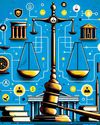
Time-Bound Disposal of Cases to Expedite the Delivery of Justice and affordabe by all in India
The delay in the disposal of cases in Indian courts remains a significant hurdle to the nation's progress.

Dev Deepawali: A grand celebration of light, spirituality, and culture in Varanasi
The holy city of Varanasi, often regarded as India's spiritual and cultural heart, came alive with the splendor of Dev Deepawali on the sacred day of Kartik Purnima.

The life of Job 'Ye judge not the judgment of God' - Jesus Christ
The Holy Bible reveals through the life of Job how the Lord tests the righteous and that faith helps one to overcome life's adversities.
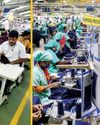
India has the highest potential for the garment industry, only a conducive government policy is required.
India's textile industry is poised for remarkable growth, with expectations to double its contribution to the GDP within the next six to seven years.
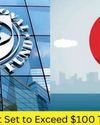
Global Public Debt may be worse than it appears, warns IMF
Global Public Debt Set to Exceed $100 Trillion, Warns IMF
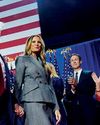
The economic consequences of Trump's Presidency: A global perspective
One of the key economic factors contributing to the Democrats' loss in the US elections was the significant rise in inflation, which was initially triggered by the COVID-19 pandemic and exacerbated by the Russia-Ukraine war.

Challenges and Successes in West Bengal's Education Sector: A Comprehensive Overview
The education system in West Bengal, particularly in districts, villages, slums, and government institutions, reflects a blend of progress and ongoing challenges.
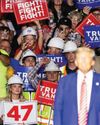
What India can expect from Trump's return
I may be too early to predict how Donald Trump's second term as president will impact the global oil market.
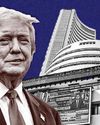
Stocks Surge Following Donald Trump's Election as 47th President of the USA
Stocks soared following the election of Donald Trump as the 47th President of the United States. Investors anticipated that the Information Technology (IT) sector would benefit from lower corporate taxes under the Republican regime, with IT stocks leading the rally.